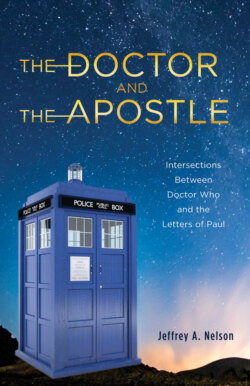Описание книги
Doctor Who has been a beloved science fiction franchise for over fifty years. Paul's letters have been around for quite a while longer, with the earliest ones that he wrote dated less than a generation after the life of Jesus. Both have inspired and instructed people on how to live and have stoked the imagination for what individual and communal life can be in their own way. And both were or are deeply flawed, sometimes struggling against their own tendencies or those of others in order to help bring about something greater for their respective worlds.
The Doctor and the Apostle explores the similarities and differences between Doctor Who's title character and Paul of Tarsus, comparing and contrasting the stories of each. Whether a fan of one or the other or both, the reader will gain a greater understanding of the possibilities of a life of faith, as well as a deeper appreciation of how pop culture and Scripture may help inform one another.
